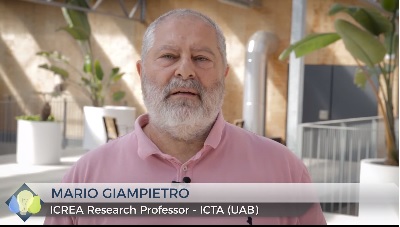MOOC "Sustainability of Social-Ecological Systems", recommended by Faculty for a Future
The MOOC "Sustainability of Social-Ecological Systems" led by our researcher Mario Giampietro has been included in the recommended list of Open Education Resources (OERs) and Massive Open Online Courses (MOOCs) launched by the project Faculty for a Future.

The MOOCs and OERs included in this list address important aspects of the socio-ecological crises relevant to different disciplines. During the next two weeks, the project Faculty for a Future (F4F) is encouraging academics around the world to check out its recommended ‘global 30’ MOOCs list and consider joining one of the ten international Disciplinary Panels which will work on the identification, development and curation of open educational resources to help academics efficiently and rapidly integrate environmental and social sustainability into curricula.
Faculty for a Future has collated a first selection of discipline-spanning OERs and MOOCs, labelled them with the main issues they address, and we have categorised them according to their principal positive qualities. There are some resources that are discipline-specific and technical, others are interdisciplinary, systemic, critical and/or transformative.
ICTA-UAB's MOOC "Sustainability of Social-Ecological Systems" is listed under "Transdisciplinary and Interdisciplinary Studies". So far, more than 13,000 students have already taken this MOOC. It offers the opportunity to become familiar with the ideas of the water-energy-food nexus and transdisciplinary thinking.
Students will learn to see your community or country as a complex social-ecological system and to describe its water, energy and food metabolism in the form of a pattern, as well as to map the categories of social actors. They provide participants with the tools to measure the nexus elements and to analyse them in a coherent way across scales and dimensions of analysis. In this way, their quantitative analysis will become useful for informed decision-making, and they will be able to detect and quantify dependence on non-renewable resources and externalization of environmental problems to other societies and ecosystems (a popular ‘solution’ in the western world).